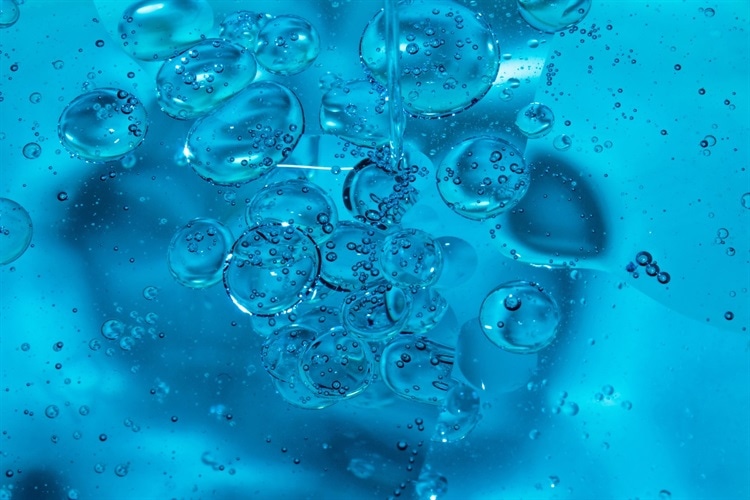AI-Engineered Hydrogels Achieve Instant and Powerful Underwater Adhesion

By Quantum Server Networks — August 2025
Underwater adhesives have long posed a challenge to materials scientists, with few solutions capable of delivering instant, strong, and repeatable adhesion in challenging marine and biomedical environments. Now, a team of researchers has leveraged machine learning (ML) and data mining (DM)—inspired by natural adhesive proteins—to engineer next-generation super-adhesive hydrogels that work instantly underwater.
Published in Nature, the study introduces an end-to-end data-driven framework that starts with protein sequence extraction and ends with a scalable hydrogel synthesis method. The results are materials that can seal high-pressure leaks, attach securely to rough, wet surfaces, and even function in living tissue.
The Adhesion Challenge
Designing high-performance soft materials like gels involves a delicate balance between monomer selection, ratio optimization, and structural arrangement. The number of possible chemical combinations is vast, making traditional trial-and-error approaches slow and inefficient.
Hydrogels are promising for biomedical adhesives, marine engineering, and underwater robotics, but creating one that bonds instantly and strongly underwater remains elusive. This study tackled the challenge by looking to nature’s own adhesive experts: proteins from marine organisms, bacteria, and other life forms.
Mining Proteins for Clues
The researchers compiled a dataset of 24,707 adhesive proteins from 3,822 organisms. Using multiple sequence alignment, they identified consensus sequences and distilled their findings into six functional monomers, each representing a different amino acid class.
Guided by the Mayo–Lewis copolymerization model, the team ran Monte Carlo simulations to predict optimal heteropolymer sequences, generating 180 candidate hydrogel formulations.
From Digital Design to Real-World Gels
All 180 hydrogels were synthesized in a one-pot free-radical copolymerization process using dimethyl sulfoxide (DMSO) as the solvent. Tests measured swelling behavior, rheology, and adhesion strength in saline environments.
Three ML-designed gels outperformed the best data-mining-based design, offering:
- Higher toughness and modulus values
- Greater viscoelasticity and mechanical resilience
- Superior adhesion across saline, freshwater, and artificial seawater
Dramatic Demonstrations
To showcase real-world potential, one hydrogel was used to fix a rubber duck to a seaside rock under constant wave impact. Another sealed a 20 mm hole in a 3-meter-tall water-filled polycarbonate pipe, stopping a high-pressure leak instantly.
Biocompatibility tests in mice showed the hydrogels could be safely implanted, paving the way for medical applications like wound sealing, surgical adhesives, and implant fixation.
What’s Next?
The team’s framework could be extended to design other functional soft materials, from deep-sea structural sealants to advanced biomedical devices. Future challenges include expanding monomer diversity, increasing dataset size, and developing physics-informed ML models that generalize across material classes.
With this blend of biology-inspired design, data science, and polymer chemistry, the future of underwater adhesion—and functional materials more broadly—looks stronger than ever.
🔗 Read the full AZoM news article here: https://www.azom.com/news.aspx?newsID=64804
📖 Original study: Liao, H. et al., “Data-driven de novo design of super-adhesive hydrogels,” Nature (2025), DOI: 10.1038/s41586-025-09269-4
Sponsored by PWmat (Lonxun Quantum) – a leading developer of GPU-accelerated materials simulation software for cutting-edge quantum, energy, and semiconductor research. Learn more about our solutions at: https://www.pwmat.com/en
📘 Download our latest company brochure to explore our software features, capabilities, and success stories: PWmat PDF Brochure
🎁 Interested in trying our software? Fill out our quick online form to request a free trial and receive additional information tailored to your R&D needs: Request a Free Trial and Info
📞 Phone: +86 400-618-6006
📧 Email: support@pwmat.com
#Hydrogels #UnderwaterAdhesion #MachineLearningMaterials #MaterialsScience #Biomimicry #PolymerChemistry #BiomedicalMaterials #MarineEngineering #NatureInspiredDesign #CleanTech #QuantumServerNetworks #PWmat

Comments
Post a Comment